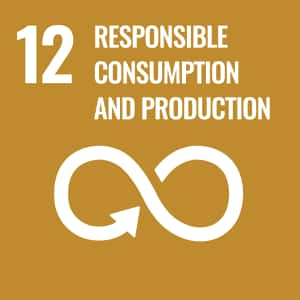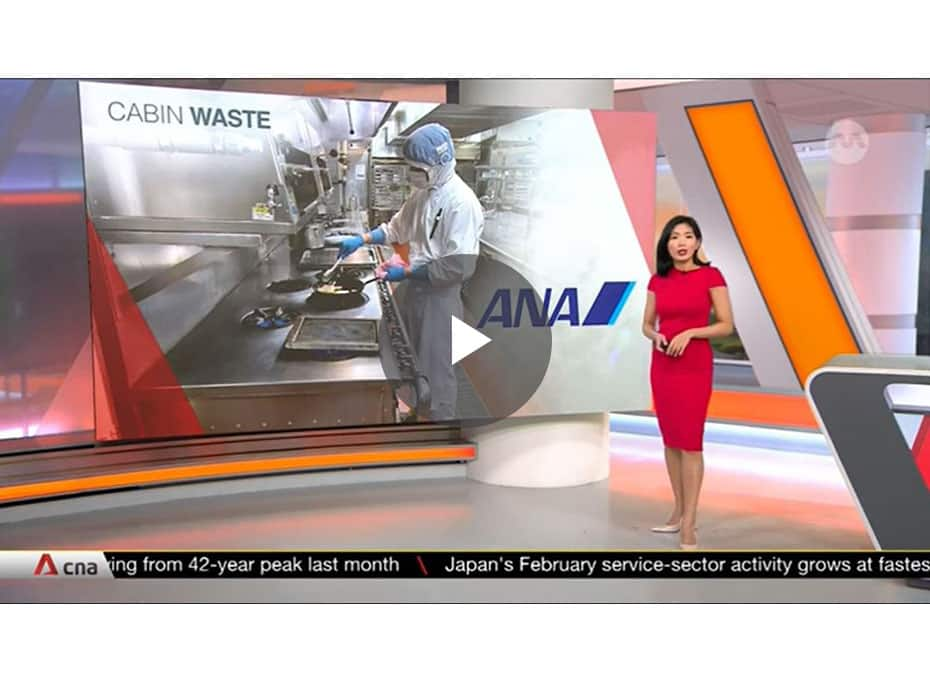2022/02/22
Launch of two new initiatives based on ANA Future Promise
From March 1, 2022, the world's first "healthy" katsudon (pork cutlet rice bowl) using alternative foods made from okara (bean curd) and konjac will be added to the snack menu served in international business class. On the same day, "soft kale," which is grown using compost from food waste generated during the preparation of in-flight meals, will be added to salads in economy class on international flights.
A "healthy" katsudon?
Katsudon (pork cutlet rice bowl) has an image of being high in calories, but in order to meet the growing health consciousness and demand for a wider range of eating habits, katsudon using plant-based Deats, arranged by Japanese cuisine chef Seigo Mori of ANA Catering Service (hereinafter ANAC), a member of "THE CONNOISSEURS"(*1), will now be available on ANA flights.
"Deats" is an alternative food made from soybean okara (bean curd) and konjac, traditional Japanese ingredients, developed by Deats Food Planning Co. The katsudon arranged this time uses Deats katsu (plant-based pork cutlet) and rice made of 50% white rice and 50% Deats brand konjac rice, making it the world's first effort to offer an in-flight meal menu using Deats.
-
*1."THE CONNOISSEURS" refers to a team consisting of famous chefs from Japan and abroad, liquor professionals, and ANA chefs who are among the best in the world's airlines.

From March 1, 2022, this will be available as a snack menu on ANA international business class North America and Europe (excluding Honolulu and Vladivostok), India, and Oceania routes departing from Japan.
ANA is promoting efforts to universalize food so that all passengers can enjoy in-flight meals while accommodating the preferences and eating habits of a wide range of customers.
In October 2021, we began offering four types of special in-flight meals on ANA's international flights: low-carbohydrate meals (DBML), low-fat meals (LFML), low-calorie meals (LCML), and low-salt meals (LSML), in collaboration with "THE CONNOISSEURS" members. In addition, a total of 24 special in-flight meals are also available. As a follow-up to this, we have introduced a "healthy" Deats katsudon to our snack menu. We hope you enjoy it.

A salad with kale grown in nutrient-rich compost made from food waste?
Since 2008, the ANAC factory, which produces ANA's in-flight meals, has been recycling 100% of the food waste generated during the preparation of in-flight meals into compost and feed. This time, as a recycling initiative to make effective use of the food waste, we have added kale that has been grown using compost derived from the cooking waste generated at the Narita factory, to the salads served in economy class on international flights.
Kale is known for its rich nutrition and unique bitterness, but the kale used in this salad is called "soft kale," and while it has high nutritional value, it is softer and less bitter than regular kale, making it delicious raw.
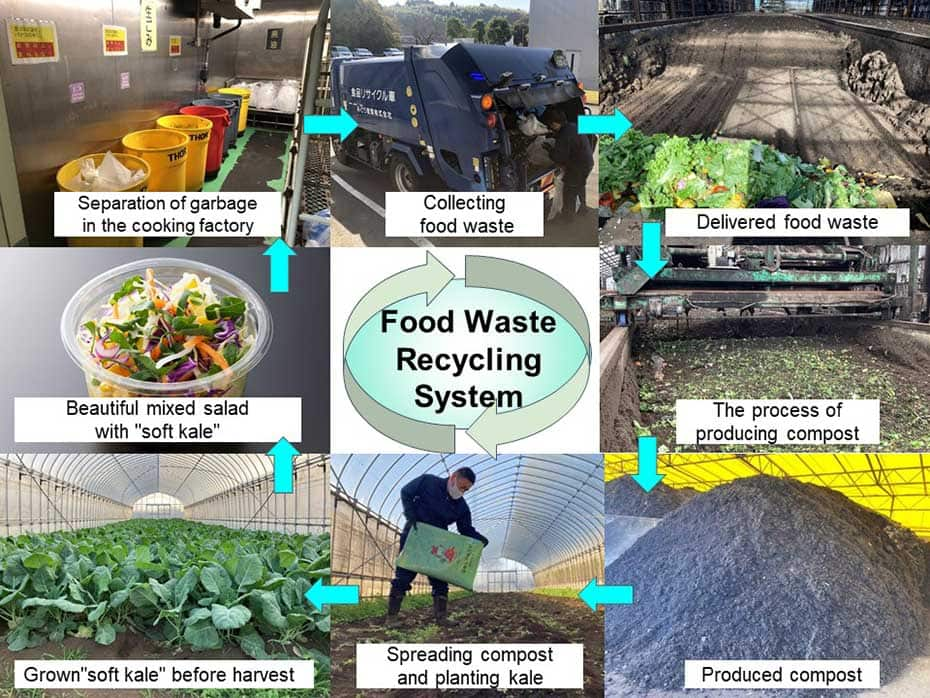
ANAC generates about 248 tons of cooking waste (equivalent to about a volume of a 25-meter swimming pool) and about 28 tons of oil (equivalent to about 14,000 2-liter filled plastic bottles) per year(*2). We have been recycling 100% of this waste into compost and feed, but we have now introduced a recycling system that goes even further and uses vegetables grown with the compost, for in-flight meals.
-
*2.Results for fiscal 2019
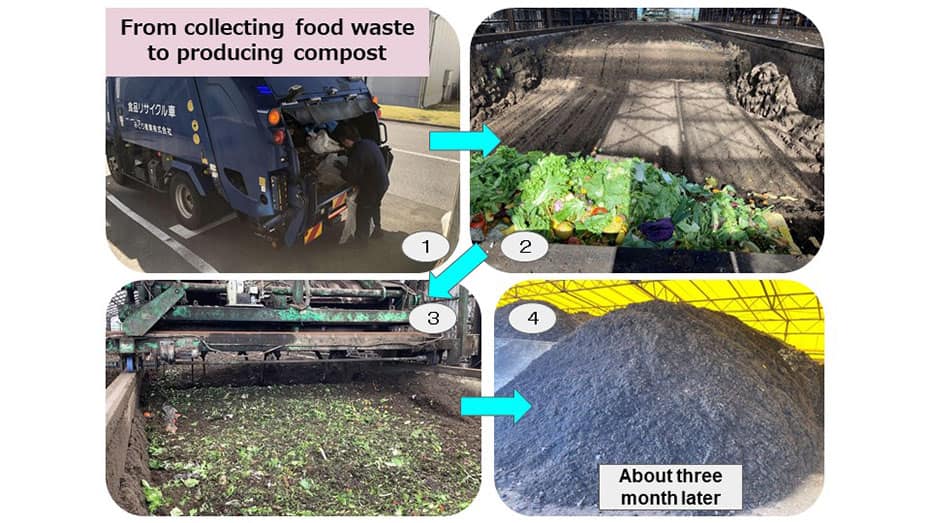
After the food waste is collected, it takes about three months for the compost to be ready, and about two months for the "soft kale" to grow from seedlings after spreading the nutrient-rich compost. After a total cycle of five months, we deliver the mixed salad to passengers on board.
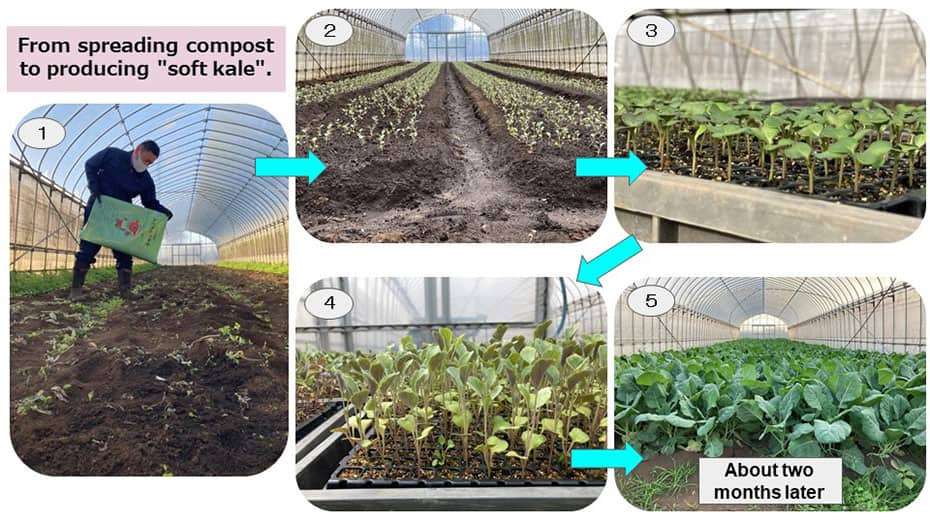
Starting March 1, 2022, "soft kale" will be available in mixed salads on all international economy class flights departing from Japan, except for flights to Mainland China, Taipei, Hong Kong, Manila, Seoul and late night flights.
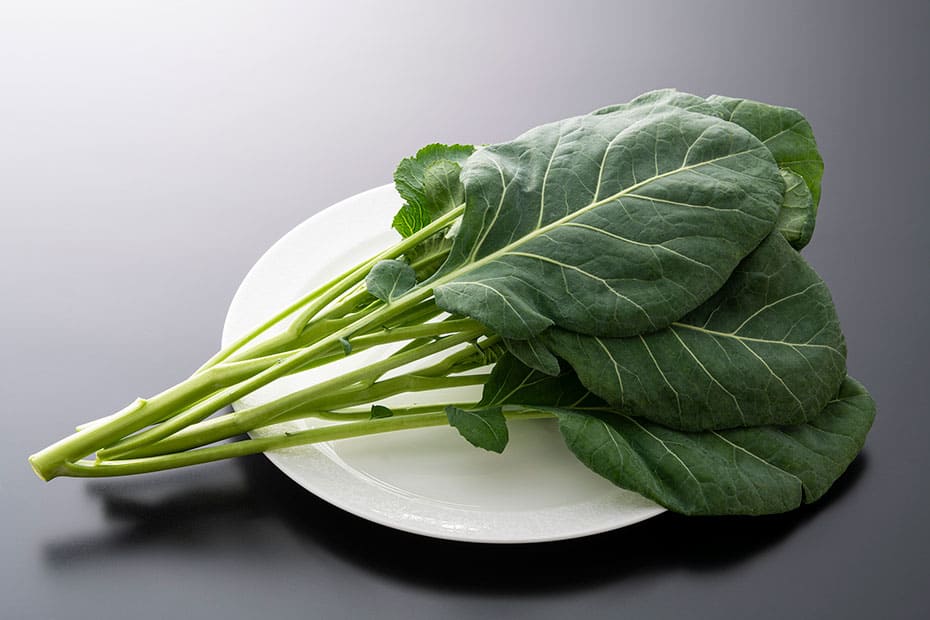
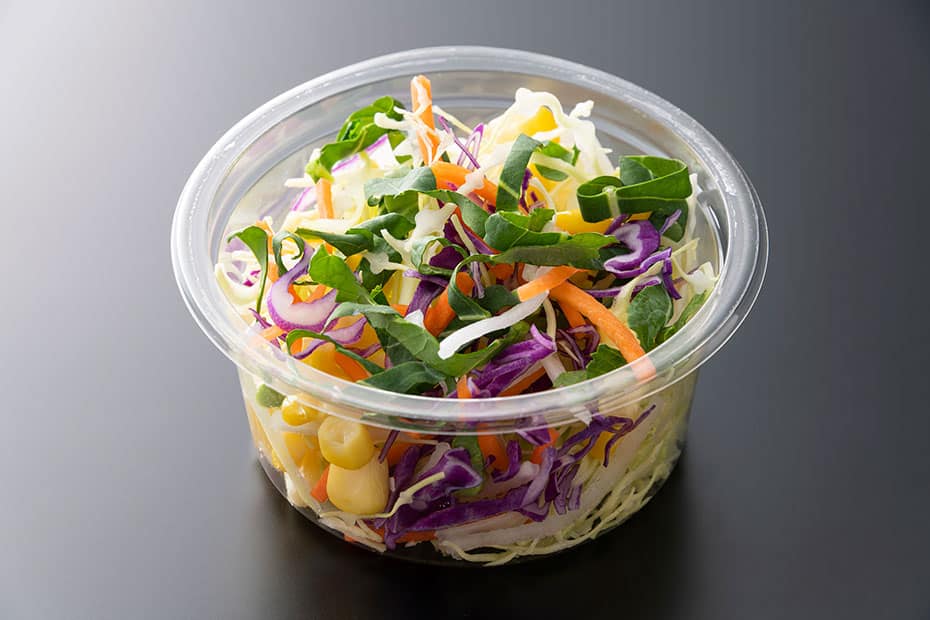
ANA will continue its efforts to universalize food so that passengers can enjoy meals that meet their individual dietary preferences and daily eating habits on board, and to expand the range of meal choices, with the aim of realizing "delightful, kind-hearted and comfortable skies for everybody." We will also contribute to the achievement of the SDGs by making effective use of the recycling system for food waste.


